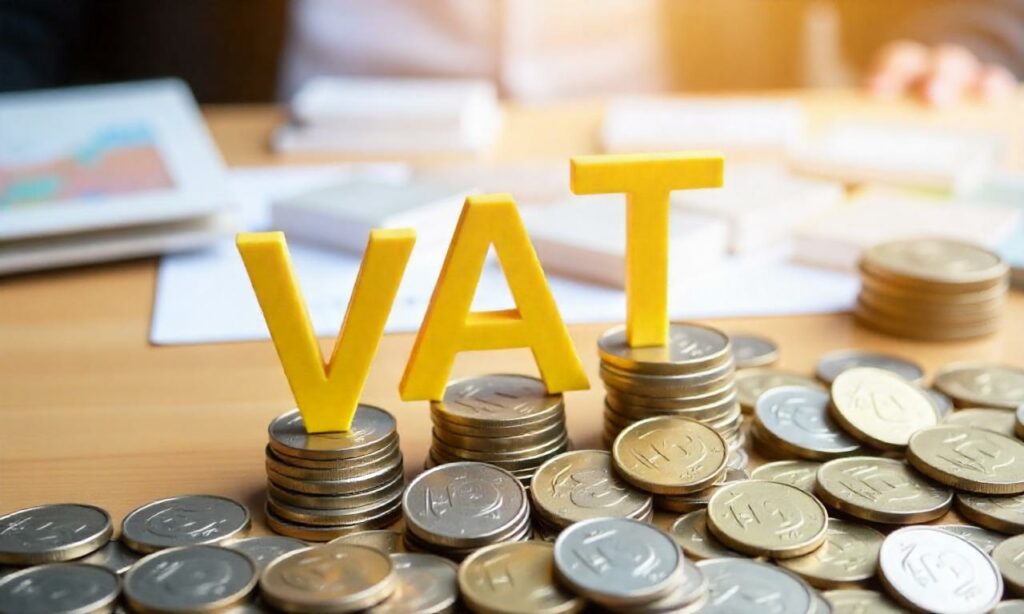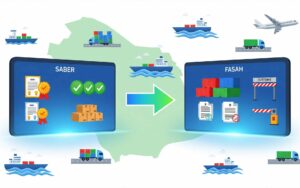What is Value-Added Tax (VAT)?
Value-Added Tax (VAT) is an indirect tax levied on goods and services at each stage of the supply chain, from production to the final sale. It applies to businesses purchasing or selling taxable products or services, with specific exemptions. Globally, VAT is a major source of government revenue, implemented by over 160 countries.
In logistics and shipping, VAT applies to the supply chain, covering production, distribution, and the final sale of goods or services. The consumer ultimately bears this tax, which businesses collect and transfer to the government. Companies can recover VAT paid to their suppliers, ensuring balanced taxation.
VAT Rates Across GCC Countries
1. Saudi Arabia
Saudi Arabia increased its VAT rate from 5% to 15% as per Royal Decree No. A/638 on May 11, 2020. Rates vary across sectors:
- Food items: 15%
- Domestic transportation: 15%
- International transportation: 0%
- Real estate sales: 5%
- Private education services: 15%
2. United Arab Emirates (UAE)
Implemented VAT at 5% starting January 1, 2018. Key details include:
- General goods and services: 5%
- General insurance and reinsurance: 5%
- Exemptions: Core healthcare, education, and international exports (0%).
3. Bahrain
Starting January 1, 2019, Bahrain introduced VAT at 5%, increasing it to 10% in 2022.
- 10%: Office supplies, legal services, dining, hotels, vehicles, and fashion.
- 0%: Basic food items, private education services, and essential healthcare.
- Exemptions: Real estate transactions and interest from loans.
4. Oman
Introduced VAT in April 2021 at 5% on most goods and services.
- 5%: General goods and services.
- 0%: Essential goods like basic food items, education, healthcare, financial services, and supplies for individuals with special needs.
5. Qatar
While Qatar signed the GCC VAT agreement, it has yet to enforce VAT on goods and services.
6. Kuwait
Like Qatar, Kuwait has signed the GCC VAT agreement but has not implemented VAT.

VAT Refund for International Shipping
Businesses can recover VAT on goods shipped outside the GCC by following these steps:
- VAT Registration: Ensure your company is registered for VAT in your operating country.
- Document Submission: Provide original invoices detailing paid VAT and export documentation.
- Refund Request: File a refund application with the relevant tax authority in your country.
- Review and Approval: The tax authority will evaluate your claim and process the refund if approved.
Summary
VAT is a significant revenue source for GCC countries, ensuring economic sustainability and funding essential public services. With varying rates and exemptions, understanding VAT policies is critical for businesses operating in the region. Efficient management of VAT payments and refunds can optimize costs, especially for companies in logistics and shipping.
Resources:
- Unified Agreement for VAT of the Cooperation Council for the Arab States of the Gulf: This document provides the unified legal framework for VAT implementation across GCC countries. It outlines definitions, general provisions, and the agreed-upon principles for VAT application within member states.
- Federal Decree-Law No. (8) of 2017 on Value Added Tax (UAE): This decree details the UAE’s VAT law, including definitions, scope, and implementation guidelines. It’s essential for understanding the UAE’s specific VAT regulations.
- The Impacts of the Introduction of Value Added Tax in Gulf Cooperation Council Countries: A study by the United Nations Economic and Social Commission for Western Asia (UNESCWA) analyzing the effects of VAT introduction in GCC countries, offering insights into economic implications and challenges.





